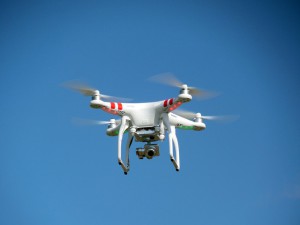In a 2016 Federal court ruling, the courts decided that high-speed internet service is a utility. This was a victory for start-up tech firms, microbusinesses and everyday consumers. They all use and depend on the internet on a daily basis. While some Americans cannot afford high-speed internet, many Americans find it difficult to function without it. Therefore, the Federal Communications Commission (F.C.C.) decided high-speed internet is a necessity and the courts agreed. This ruling affirms that high-speed internet is as important as telephones and electrical power in the lives of Americans. It is not a luxury.
The decision from the United States Court of Appeals for the District of Columbia Circuit was made in a case about net neutrality. Net neutrality is a rule that ensures internet service providers deliver the same internet service to all its consumers. This keeps companies who can afford to pay for faster speed and broader service from having an unfair advantage over their competitors who cannot afford it. Without net neutrality broadband providers could allow some content on the web to be delivered at slower speeds. Consumers could be charged extra for better service and have to pay more to be able to receive some content. Only two judges were in agreement. The dissenting Judge, Stephen Williams referred to the rules an “unreasoned patchwork”. He felt that competition in the broadband industry would be jeopardized by the ruling of the F.C.C. Google and Netflix are in favor of the neutrality rules.
When the rule was put in place Ajit Pai was a commissioner with the F.C.C. He was appointed by President Obama in May 2012. Ajit Pai, a Republican commissioner, was outspokenly against the regulation of broadband as a utility from the very beginning. Ajit Pai encouraged cable and telecommunications firms to continue the legal challenges against the rule. Cable, telecommunications and wireless internet providers sued to overturn the regulations put in place by the F.C.C, claiming that the F.C.C. exceeded its authority. This resulted in the 2016 ruling, upholding the decision by the F.C.C. The legal battle is anticipated to continue.
In January 2017, President Trump named Ajit Pai the new Chairman of the F.C.C. Since Mr. Pai took office, the F.C.C. closed an investigation involving T-Mobile, AT&T and Verizon. The investigation was concerning their zero-rating practices. Some view this as the dismantling of net neutrality by the F.C.C.
A New Privacy Law Could Make Insurance Expensive
Drones have been causing issues with both the law and U.S. citizens since they exploded in popularity a few years ago. There have been countless stories of people clashing and violence occurring when drones are involved in flying over private property. With issues of privacy and a fear of governmental and private spying and intrusion on private life, it makes sense that drones are viewed with suspicion — not that that justifies harming the operator or damaging someone else’s private property. Now, it seems as though a new law that was just enacted in my home state of Florida is going to make flying a drone even more financially risky.
Florida Governor Rick Scott had signed the Freedom from Unwarranted Surveillance Act (FUSA) and it took effect on July 1st. This act is meant to prohibit a person, governmental agency, or political party or subdivision to use drones from taking pictures and capturing video of a person’s private property or the people on said private property (regardless of whether they are the owner, an occupant, or simply a visitor) with the intent to conduct surveillance and spy on their private and personal lives. The law makes it so that a drone operator must get written consent from the people on said private property if they want to use the drone in this manner, especially if the people have a reasonable expectation of privacy on their own property. The law applies to both private citizens as well as law enforcement and goes along with a previous law that require police to get a warrant to use drones for evidence collection. It also doesn’t apply to certain businesses or professions that are licensed by the state for certain reasons.
With the option to sue using this law as support, it’s going to become much more difficult for people and agencies to get insured against damage and lawsuits. It also means that many companies that rely on drones for their businesses are going to be bringing lawsuits against the state of Florida for infringing on their ability to conduct business in a free and fair way. Drones are used by insurance companies to scope out damage in hard to reach places and hazardous environments so that they can gather information more quickly and with less chance of putting someone in a dangerous position. While it remains to be seen how this will play out (after all, the law is relatively new), I can already foresee a host a lawsuits from both private citizens and corporations aimed at this law.
If you’d like to read more, the link is here.